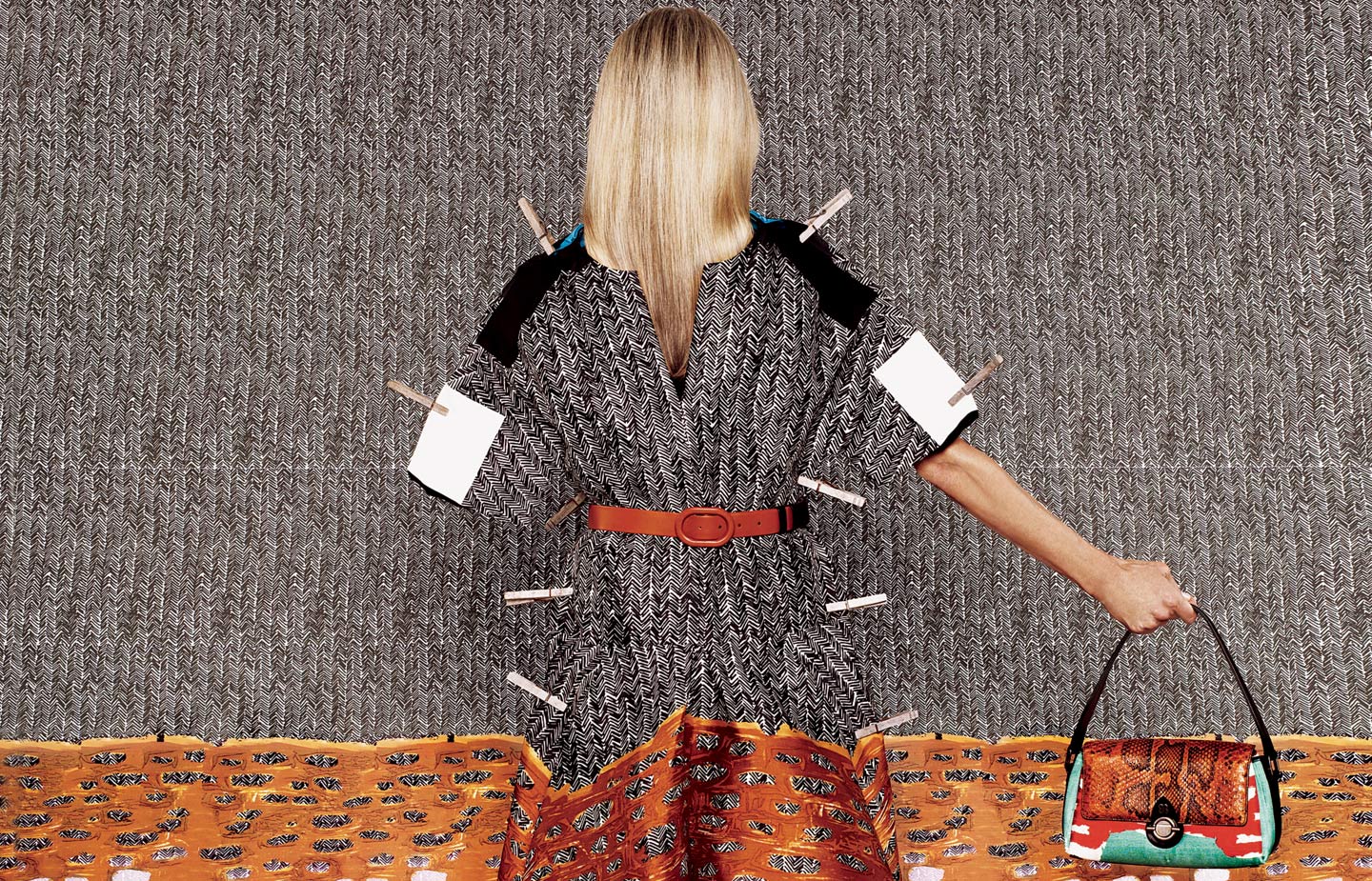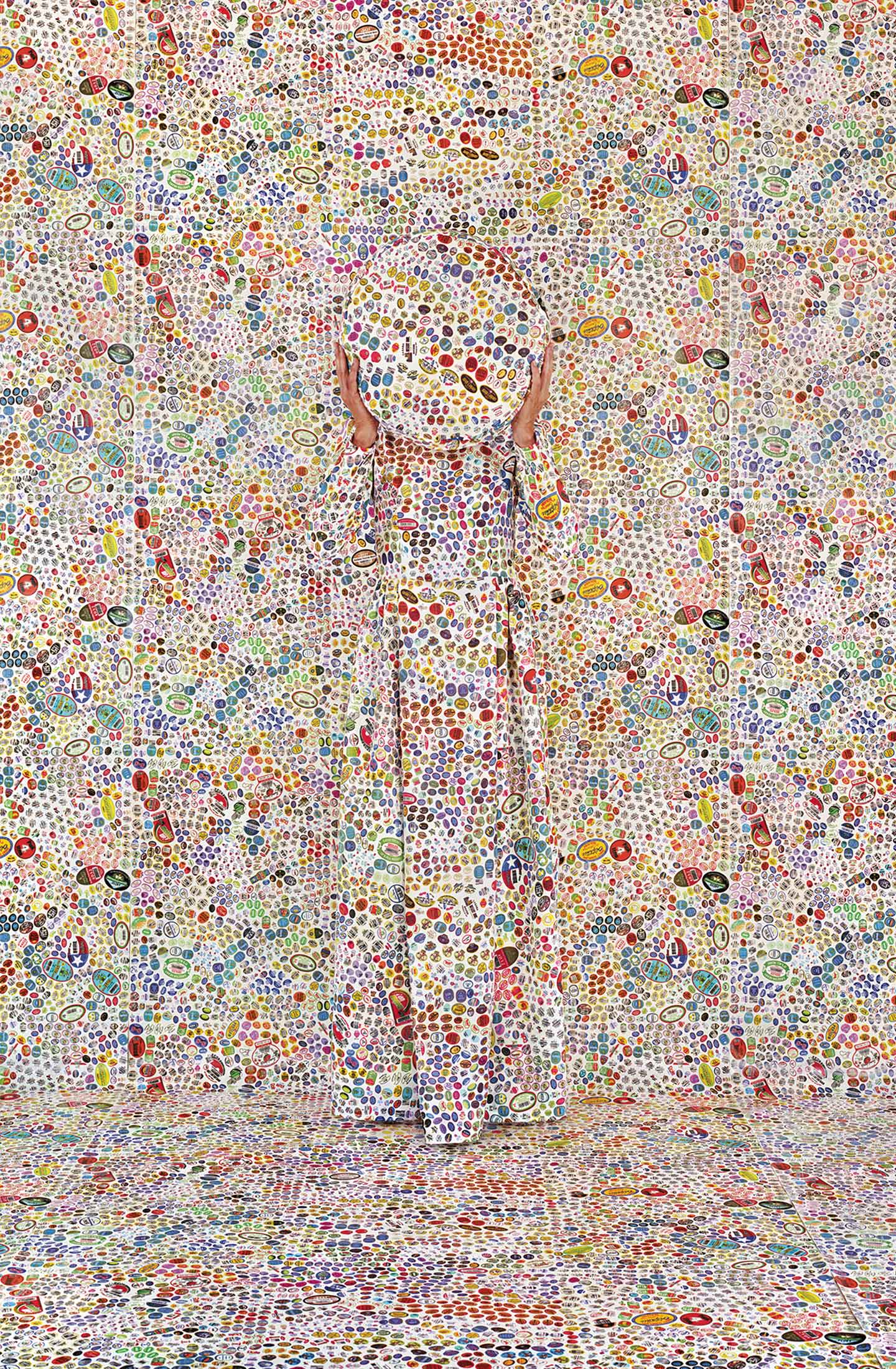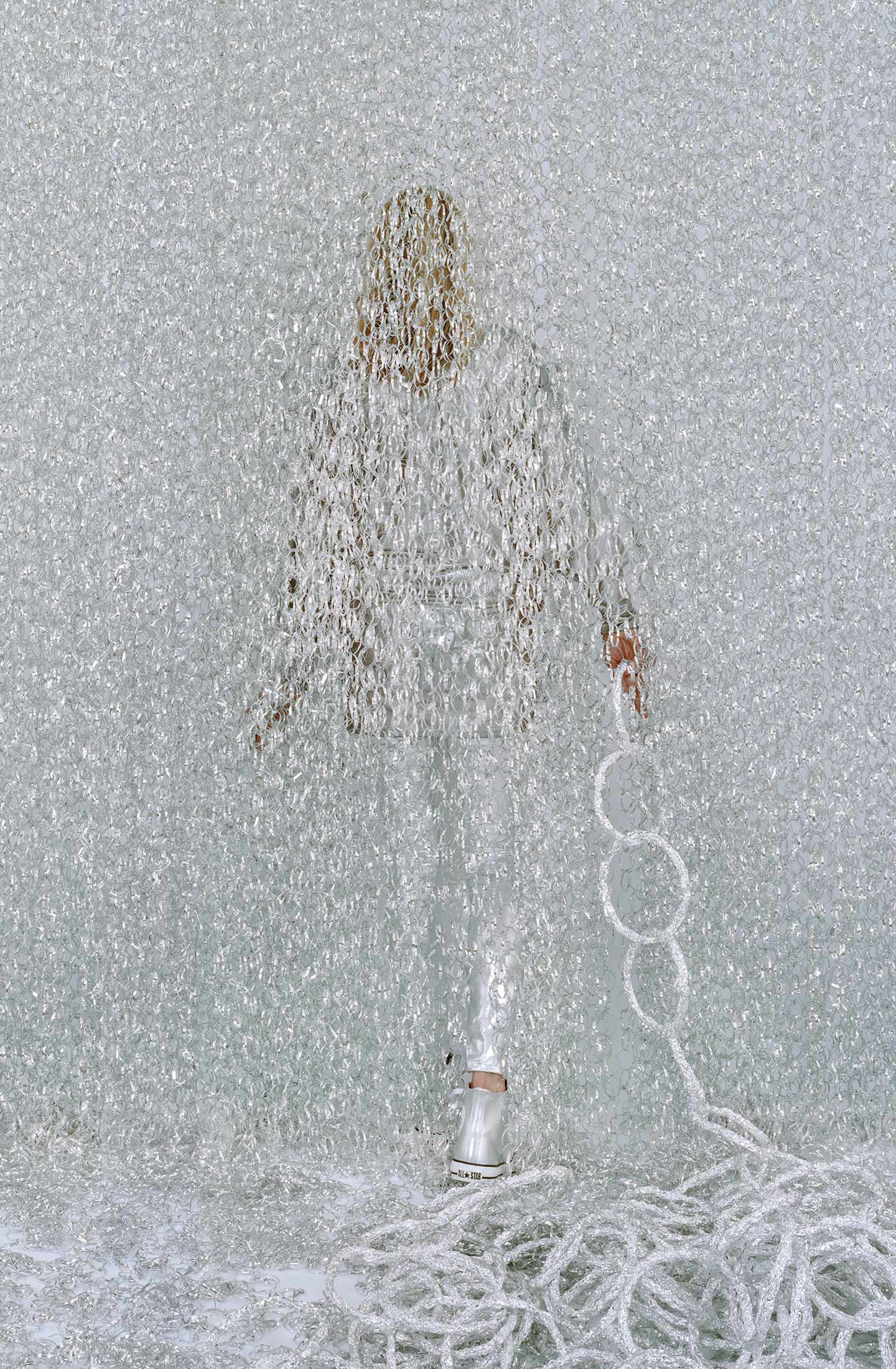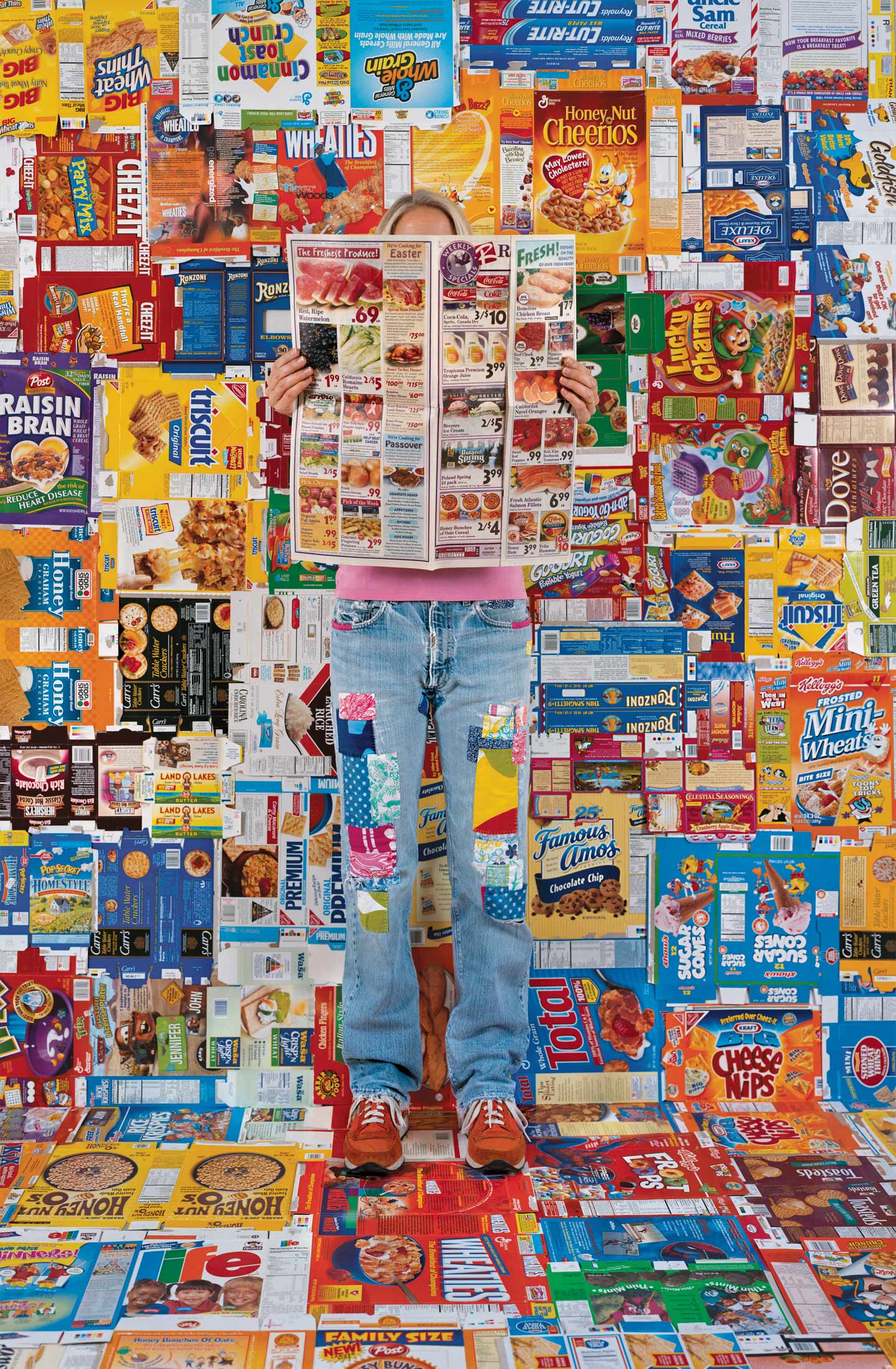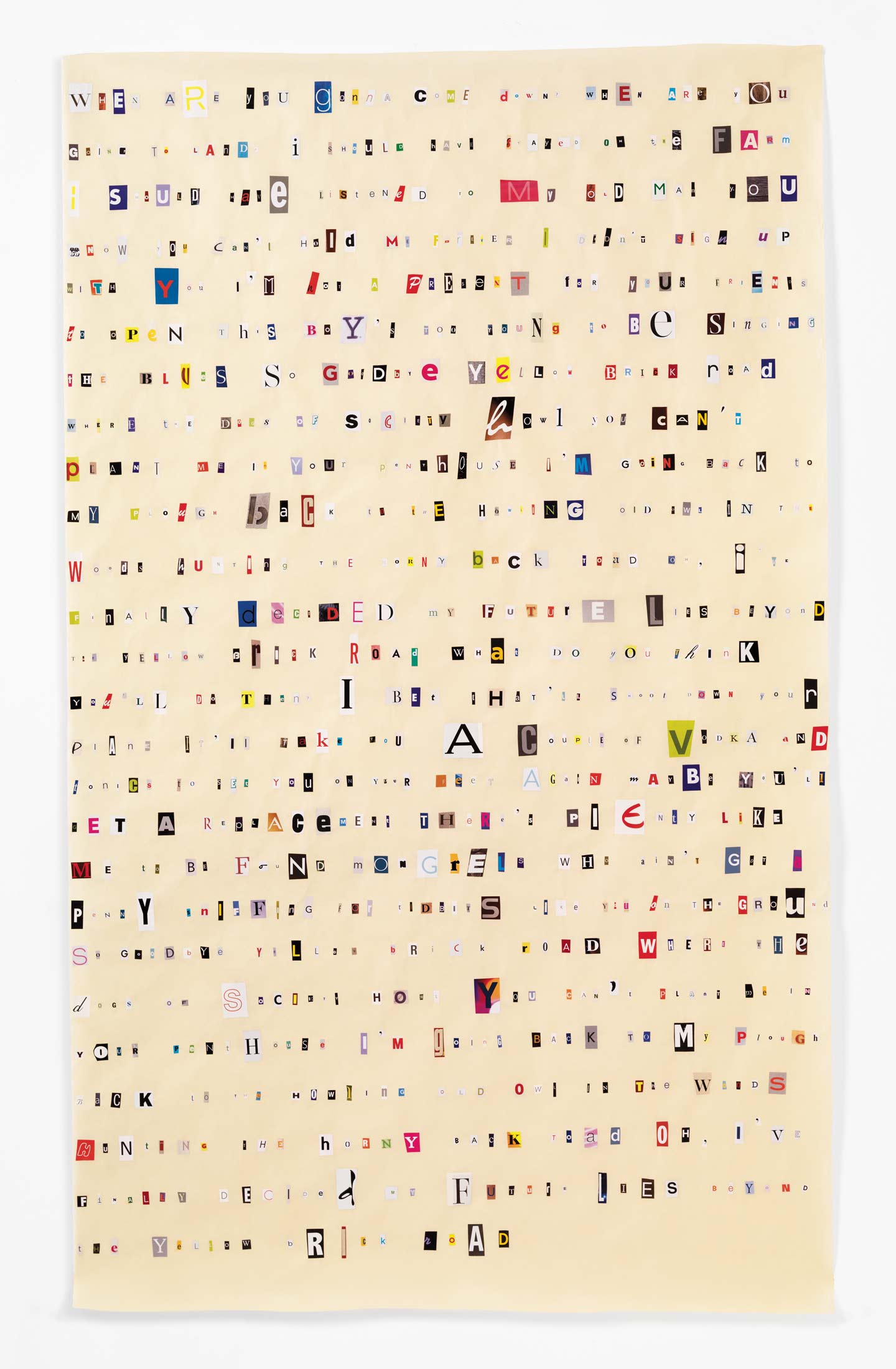Lost in My Life
Whether making breakfast or working on a drawing, ‘it’s all art’ to Rachel Perry ’84.
Conceptual artist Rachel Perry prefers to work at home. Home, in this case, is a grand 10th-floor Brooklyn sublet with sweeping views of the city. Much of the apartment resembles a museum, with ornate pieces of antique furniture, art and drapery tucked neatly into every corner.
The space seems perfectly appropriate for Perry, whose work runs the gamut of art forms, often blurring the lines between drawing, sculpture, video, collage, photography, installation and performance. Her New York studio (she splits her time between the city and Massachusetts’ North Shore, where she also has a home studio) is a spare bedroom. While small, it functions well enough for Perry, who oscillates between working on pieces—like the latest in her Chiral Drawings series, in which she uses her left and right hands to draw lines with found pens, pencils and markers—and completing life’s mundane tasks, like emptying the dishwasher.
“My work and life are intertwined,” Perry says.
Much of Perry’s work is itself a commentary on the business of living. On the spare bed in her studio are four prints of her latest work, the newest in her Lost in My Life series of staged self-portraits in which she is surrounded and mostly obscured by everyday objects like twist ties, cereal boxes, receipts, or in this case, fruit stickers—items typically recycled from life’s routines. In the oddly captivating images, the brightly colored stickers found on supermarket bananas, apples, oranges and other fruit completely cover the floor and the wall behind Perry, who dons sticker-covered clothing and blends nearly completely into a couch wrapped in the same pattern.
“Fruit stickers are full of information—economic, political, social—rich with suggestions. Where does our fruit come from? How do we brand nature?” says Perry, who uses beauty as a strategy to draw the viewer into the deeper subtext of the piece.
“I hope to make people see the world we live in—which we are consumed by—a little differently.”
